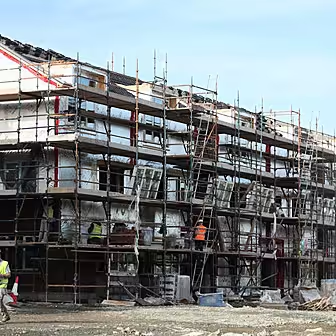A report from the United Nations says "gross human rights violations and abuses" were committed in Myanmar.
The Independent International Fact-Finding Mission said these abuses were in Kachin, Rakhine and Shan States.
It says the country's top military generals, including Commander-in-Chief Senior-General Min Aung Hlaing, must be investigated and prosecuted for genocide in the north of Rakhine State - as well as for crimes against humanity and war crimes.
The mission found patterns of gross human rights violations and abuses that "undoubtedly amount to the gravest crimes under international law", mainly by Myanmar’s military, the Tatmadaw, but also by other security forces.
The report states: "Military necessity would never justify killing indiscriminately, gang raping women, assaulting children, and burning entire villages.
"The Tatmadaw's tactics are consistently and grossly disproportionate to actual security threats, especially in Rakhine State, but also in northern Myanmar".
"They are shocking for the level of denial, normalcy and impunity that is attached to them.
"The Tatmadaw's contempt for human life, integrity and freedom, and for international law generally, should be a cause of concern for the entire population."
In this August 23rd photo, 70-year-old Rohingya refugee woman Dildar Begum waits for a call that never came from her son, who still lives in Myanmar, on Eid al-Adha festival at Kutupalong refugee camp, Bangladesh | Image: Altaf Qadri/AP/Press Association Images
List of alleged perpetrators
The UN says the crimes against humanity committed in Kachin, Shan and Rakhine States include murder, imprisonment, enforced disappearance, torture, rape, sexual slavery and other forms of sexual violence.
In addition, it says, the elements of the crimes against humanity of extermination and deportation are also present in Rakhine.
The mission concludes: "There is sufficient information to warrant the investigation and prosecution of senior officials in the Tatmadaw chain of command, so that a competent court can determine their liability for genocide in relation to the situation in Rakhine State.
"The crimes in Rakhine State, and the manner in which they were perpetrated, are similar in nature, gravity and scope to those that have allowed genocidal intent to be established in other contexts.
"Factors pointing at such intent include the broader oppressive context and hate rhetoric; specific utterances of commanders and direct perpetrators; exclusionary policies, including to alter the demographic composition of Rakhine State; the level of organization indicating a plan for destruction; and the extreme scale and brutality of the violence."
The UN has drawn up a list of alleged perpetrators as priority subjects for investigation and prosecution, who it believes had effective control and bear the greatest responsibility.
The Tatmadaw Commander-in-Chief Senior-General Min Aung Hlaing is named in the report, along with five other military commanders.
A longer list of names is being kept in the custody of the UN High Commissioner for Human Rights and "can be shared with any competent and credible body pursuing accountability in line with international norms and standards."
The report notes that civilian authorities had little scope to control the actions of the Tatmadaw.
It also finds that "through their acts and omissions, the civilian authorities have contributed to the commission of atrocity crimes."
Myanmar State Counselor Aung San Suu Kyi delivers a speech during the third meeting of Myanmar's 21st Century Panglong Peace Conference at the Myanmar International Convention Centre in Nay Pyi Taw, Myanmar in July 2018 | Image: U Aung/Xinhua News Agency/PA Images
Aung San Suu Kyi criticised
"The State Counsellor, Daw Aung San Suu Kyi, has not used her de-facto position as head of government, nor her moral authority, to stem or prevent the unfolding events in Rakhine State," the report states.
"Impunity is deeply entrenched in Myanmar’s political and legal system, effectively placing the Tatmadaw above the law."
The report adds that justice has therefore remained elusive for victims in the country for decades.
"The impetus for accountability must come from the international community."
While the UN mission was never granted access to Myanmar, the team amassed "a vast amount of information from primary sources" - including 875 in-depth interviews with victims and eyewitnesses, satellite imagery and documents, photographs and videos.
A fuller report, containing detailed information and legal analysis will be published and presented to the UN Human Rights Council on September 18th.











